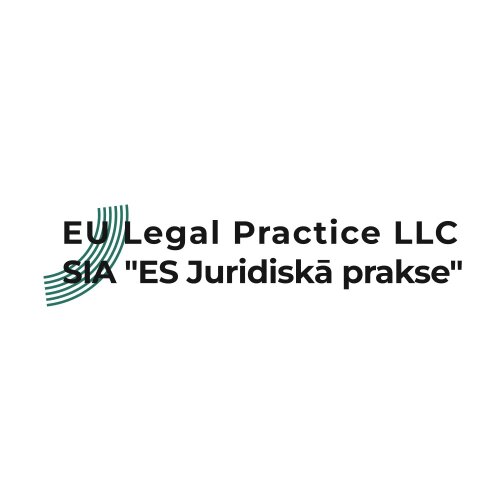Best Employment & Labor Lawyers in Riga
Share your needs with us, get contacted by law firms.
Free. Takes 2 min.
List of the best lawyers in Riga, Latvia
About Employment & Labor Law in Riga, Latvia
Employment and labor law in Riga, Latvia, is designed to govern the relationship between employers and employees, ensuring fair treatment and compliance with regulations. These laws encompass various aspects, including employment contracts, wages, working hours, discrimination, health and safety, and employee termination. The Latvian labor market has seen significant changes due to European Union directives, bringing it in line with broader European labor standards. Understanding these laws is crucial for both employers and employees to ensure a fair and legally compliant workplace environment.
Why You May Need a Lawyer
There are numerous situations where legal expertise in employment and labor law may be required. Employers may need advice on drafting contracts or handling disputes with employees, while employees might seek assistance with issues such as unfair dismissal, discrimination, or wage disputes. Additionally, labor laws can be complex, and both parties may require guidance to ensure compliance with local and international regulations. Seeking legal counsel can help prevent and resolve conflicts, ensuring that legal rights are protected and that obligations are fulfilled.
Local Laws Overview
Latvian labor laws offer robust protections to employees and stipulate clear guidelines for employers. Key aspects include:
- Employment Contracts: Contracts can be for a set period or indefinite and must outline the parties' rights and responsibilities.
- Working Hours and Wages: Standard working hours should not exceed 40 hours per week, with overtime regulated. The national minimum wage is frequently updated and must be adhered to.
- Non-Discrimination: Discrimination based on gender, age, disability, race, or other protected characteristics is prohibited.
- Leave Entitlements: Employees are entitled to annual paid leave, maternity/paternity leave, and sick leave.
- Termination of Employment: The law provides regulations on notice periods and severance pay, ensuring fair treatment in dismissals.
- Health and Safety: Employers must ensure a safe working environment, adhering to health and safety standards.
Frequently Asked Questions
What is the standard probation period in Latvia?
The standard probation period in Latvia is generally up to three months, though it can be extended in certain circumstances.
Can an employer terminate an employee without notice?
No, Latvian law requires employers to provide notice and just reason for termination. Immediate termination is only allowed under specific, serious conditions.
How is overtime compensated according to Latvian law?
Overtime work must be compensated with at least double the regular pay rate or additional rest time.
Are foreign workers protected by the same employment laws in Latvia?
Yes, foreign workers are entitled to the same protection and rights as Latvian citizens under employment law.
What actions can employees take if they face workplace discrimination?
Employees can report discrimination to the Ombudsman or the State Labour Inspectorate and may pursue legal action if necessary.
How does the law address workplace harassment?
Workplace harassment is prohibited, and victims can raise complaints with their employer or relevant authorities, seeking support and remedies.
What are the requirements for workplace safety?
Employers must adhere to national health and safety regulations, providing necessary equipment, training, and risk assessments.
Is collective bargaining recognized in Latvia?
Yes, collective bargaining is recognized, allowing trade unions and employers to negotiate labor conditions collectively.
What rights do pregnant employees have in Latvia?
Pregnant employees are entitled to maternity leave and protection from dismissal due to their condition, among other rights.
How can employees report unfair labor practices?
Employees can report unfair labor practices to the State Labour Inspectorate, which investigates complaints and ensures compliance with labor laws.
Additional Resources
For those seeking further information, the following resources may be helpful:
- State Labour Inspectorate: An essential body for reporting violations and obtaining information on labor rights.
- Latvian Ombudsman Office: Offers protection against discrimination and serves as a mediator in disputes.
- Legal Aid Administration: Provides free legal aid to individuals who meet certain criteria.
- Latvian Trade Union Confederation: Assists workers in understanding their rights and advocating for better working conditions.
Next Steps
If you require legal assistance in employment and labor matters, consider taking the following steps:
- Assess your situation and identify specific legal issues that need addressing.
- Gather relevant documents, such as employment contracts, correspondence, and any evidence related to the dispute.
- Consult with a specialized employment lawyer or legal advisor, particularly one familiar with the Latvian legal system.
- Consider reaching out to relevant organizations or governmental bodies for guidance and support.
- Stay informed about your rights and responsibilities under local and international labor laws.
Taking these steps can help you navigate the complexities of employment law and ensure that your rights are protected or obligations are met.
Lawzana helps you find the best lawyers and law firms in Riga through a curated and pre-screened list of qualified legal professionals. Our platform offers rankings and detailed profiles of attorneys and law firms, allowing you to compare based on practice areas, including Employment & Labor, experience, and client feedback.
Each profile includes a description of the firm's areas of practice, client reviews, team members and partners, year of establishment, spoken languages, office locations, contact information, social media presence, and any published articles or resources. Most firms on our platform speak English and are experienced in both local and international legal matters.
Get a quote from top-rated law firms in Riga, Latvia — quickly, securely, and without unnecessary hassle.
Disclaimer:
The information provided on this page is for general informational purposes only and does not constitute legal advice. While we strive to ensure the accuracy and relevance of the content, legal information may change over time, and interpretations of the law can vary. You should always consult with a qualified legal professional for advice specific to your situation.
We disclaim all liability for actions taken or not taken based on the content of this page. If you believe any information is incorrect or outdated, please contact us, and we will review and update it where appropriate.
Browse employment & labor law firms by service in Riga, Latvia
Riga, Latvia Attorneys in related practice areas.













